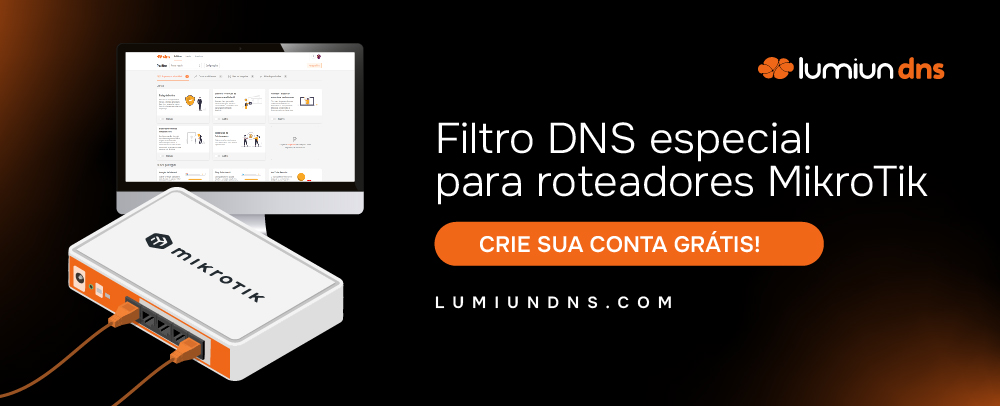The General Data Protection Law in Industries is essential, establishing clear rules on the processing of personal data of employees, partners and customers. Thus, the industry can guarantee the privacy and security of information , avoiding the penalties that are imposed by law. Thus, industries should prioritize the implementation of LGPD in business to ensure ethical and legal treatment of data. Companies with large databases are among the most affected by LGPD. In industry, this means a complete restructuring throughout the data processing process, from collection to exclusion.
For industries dealing with sales, inventory, distribution, employees, representatives and suppliers data, LGPD presents challenges, especially for unprepared new rules. The implementation of LGPD will make all the difference in the treatment strategy of this information , bringing numerous benefits to the industry. Learn more about implementing LGPD in industries and check out the free material we have prepared for you.
The importance of LGPD for the industrial sector
Adopting a consolidated strategy to protect data from employees and partners will allow a significant increase in the company's level of security. Thus, compliance with LGPD demonstrates the company's commitment to responsibility and safety, making trade relationships more transparent and reliable.
Attention to the law should be especially focused on intermediate processes, ie the company's internal activities. Since industries are responsible for employee data, they should also apply LGPD in favor of their most sensitive information.
It is a LGPD requirement that companies contain as the robust data governance structure, rules that are supervised by the ANPD (National Data Protection Authority), a body responsible for ensuring compliance with the legislation. To meet this requirement, it is necessary to create consolidated information security policies , establish audit process and implement data protection technology. These practices not only guarantee legal compliance, but also optimize operations, increase productivity and minimize information security risks.
The importance of data for industry
Thus, the advancement of digital transformation has made data an essential strategic asset in modern industry, providing valuable insights that drive efficiency, competitiveness and innovation. Industry 4.0 introduced data collection and analysis strategies, facilitating and optimizing industrial operations. Maintenance, production and logistics data are essential for optimizing processes, supporting strategic decisions and innovating in new services and products.
That is, the use of this information in the strategic progress of the industry allows managers to be able to make informed decisions and anticipate problems, adding even more value to operations. For example, predictive analysis helps predict equipment failures before they occur, reducing maintenance costs and reducing unexpected stops time.
However, with the large amount of data collected, the need arises to protect it properly. Implementing LGPD in industries will allow them to treat data more responsible, protecting the privacy of individuals and employees. Thus, data processing becomes a transparent process, beneficial to the company and aligned with current legislation.
Why is data protection crucial in industries?
There are several reasons that make data protection an essential aspect within the industry. With the modernization of equipment and technologies, industries had to deal with large volumes of sensitive information, including personal data from employees, business partners and customers. Security violations can result in serious consequences such as reputation, loss of confidence and especially legal sanctions.
Therefore, we need to understand that data protection plays a fundamental role in business continuity. Some cyber attacks may be extremely harmful, such as ransomware that can paralyze operations, impair production and cause a major financial impact. According to data from Checkpoint Research , the current cyber security scenario has seen a considerable increase in ransomware attacks, often exploring zero -day vulnerabilities.
Allied to all these factors, the protection of information also establishes a direct line with innovation and industrial competitiveness. Thus, the greater the commitment to security and privacy, the better the chances of attracting and retaining customers and partners.
LGPD in Industry 4. 0
With significant changes in industry 4.0, it is crucial to adopt more efficient technologies to improve productivity and quality of operations. In this sense, some fundamental pillars were implemented, as we will see below:
Big Data
One of the main features of industry 4.0 is the massive use of big data , where large volumes of information are collected, analyzed and used in process optimization and more assertive decision making. However, collection of large amounts of data also favors increased risk of security violations.
Thus, the implementation of LGPD in the context of Big Data, it is essential to adopt anonymization of data whenever possible, collecting only the strictly necessary information. Continuous audits are also critical to monitor data use and ensure compliance with privacy policies.
In addition, compliance with LGPD in the use of big data within the industry also involves transparency with individuals whose data is collected. This means that it is the company's responsibility to clearly inform what data is being collected and how it will be used within the industry. That is, transparency is indispensable for the construction and maintenance of trust avoiding legal and especially ethical problems.
Internet of Things
The Internet of Things is another extremely important pillar within Industry 4.0. Through it it is possible to connect devices and sensors for real -time data collection and sharing, allowing the implementation of more complete and efficient processes. IoT connects physical devices such as buildings and vehicles through sensors and software, allowing data collection and sharing. Within the industry this solution enables remote control and monitoring of devices, increasing automation and efficiency.
Therefore, this great connectivity can bring several advantages to industry such as process automation and predictive maintenance. However, it also brings with it very significant challenges in terms of privacy and information security.
Implementing LGPD in IoT requires robust cyber security practices, such as multifactorial authentication, data encryption and network segmentation. Because of this, it is essential that the company makes impact assessments to privacy to identify and investigate potential risks.
Cloud computing
The great expansion of cloud computing has also reached the industrial environment, offering scalability, flexibility and efficiency for information storage and processing. However, this technology brings security and privacy challenges. Thus, industries must choose providers that offer security guarantees and comply with data protection regulations.
In this case, to ensure compliance with LGPD it is necessary for industries to implement data governance policies with clear definitions of how data will be managed and protected. For this, it is necessary to adopt more rigorous access controls, data encryption and regular audits to protect this data.
Thus, these processes should focus on ensuring transparency and information protection, clearly informing the holders about how their data will be stored and processed.
Digital Twins or digital twins consist of virtual representations of physical objects, processes or systems, allowing real -time simulation and analysis. Thus, and this feature is used to optimize operations, improve efficiency and reduce failures.
However, the use of digital Twins involves collecting and processing a large volume of information, including personal and sensitive data from employees and partners. The protection of these data is imposed by LGPD, avoiding access to unauthorized users and improper use of this information.
Implementation of LGPD in the use of digital Twins is critical to ensuring that this information that is collected is protected and adequately anonymously. This includes cyber security application, such as authentication of two factors and data encryption. In addition, transparency and consent are crucial: companies must inform holders about the collection, protection and use of their data.
3D print
3D printing is one of the most revolutionary technologies we have had in the last decade. Through it it is possible to produce personalized parts and products efficiently and accurately, and can be used for mass production, rapid prototyping and product customization.
However, using 3D printing within the industry also requires the collection and use of digital data for the creation of models. For this reason, industry LGPD implementation can help protect this data, especially when they contain confidential or personal information.
Thus, this implementation may include the adoption of protection measures such as design encryption, network segmentation for 3D printing system insulation, and function -based access control. This will help the industry remain protected and prevent misuse of this data.
Autonomous Robots (AGV)
Autonomous or AGV (automated guided vehicles) robots play an essential role in industrial automation allowing material transport to be done safely and efficiently. As well as other features, these robots control and process a large volume of data in real time to be able to operate autonomously.
In this sense, LGPD requires this information to be protected from unauthorized access and possible security violations, and industry is responsible for adopting more rigorous security measures such as robust authentication, data encryption and network segmentation. Thus, it is necessary to perform privacy impact assessments continuously as a way of identifying and mitigating potential risks.
Four steps for LGPD implementation in the industries
Taking into consideration all the factors we mentioned earlier, the implementation of LGPD within industries is indispensable . For this, we separated four fundamental steps for LGPD implementation in industries:
1- Perform an impact analysis of data protection
Before adopting any security measure, an impact analysis of data protection (DPIA) . This analysis allows you to identify and evaluate risks in the treatment of personal data, helping the company create effective mitigation strategies.
DPI includes a more detailed review of the processes of collection, storage, use and sharing of information. This assessment should be performed with the help of all stakeholders , in order to obtain a comprehensive view of the risks and mitigation measures that must be adopted. That is, it is essential to respect the rights of the holders to guarantee the privacy and security of the data.
2- Develop information security policies
The development of more robust information security policies is critical to the implementation of LGPD in industries. That is, these policies allow the establishment of guidelines and security practices to protect personal data of employees and partners , avoiding unauthorized access, misuse and security violations.
Thus, information security policies adopted should have measures such as function -based access control, insecurity incident management, data encryption and regular audits. The organization must clearly define responsibilities related to data protection, promoting a security culture within the company.
The industry data protection policy is not only a crucial document, but also a guarantee of safety and legal compliance for the company. We created a model of “sensitive data protection policy in accordance with LGPD” to reinforce information security in your industry. Click on the banner to download the model for free.
3- Training and awareness of employees
The company implements a training and awareness process for employees to help maintain the security of data collected. All employees must understand the relevance and importance of protecting the data and their respective responsibilities regarding the processing of this personal information.
Thus, a well -built and applied training program helps in developing a culture of privacy and security within industry, addressing the fundamental principles of LGPD , best practices for the protection of information security information and information security policies.
The company also implements continuous awareness of data protection, which works synergistly with training. For this, it is possible to include internal communication campaigns, workshops and informative bulletins that help employees understand the importance of adopting a preventive posture regarding information protection.
4- Implementation of data management tools
Data management tools are valuable allied to ensure compliance with LGPD in industries. With the help of these tools the industry can automate and simplify the processing of information, from collection to proper disposal of this data.
Data management tools should be compatible with industry needs and introduce existing systems. That is, tools with audit and continuous monitoring allow quick responses to safety incidents and violations.
In addition, these data management tools should also support the rights of data holders, such as the right of access, correction and exclusion. These features will help your industry be appropriate for LGPD, building greater confidence with its employees, partners and customers.
Challenges and solutions in the implementation of LGPD in the industries
As with any company, the industry also presents some challenges and solutions in the implementation of LGPD:
Deal with sensitive and confidential data
Sensitive and confidential data handling is one of the biggest challenges in LGPD implementation in industries . Thus, the company must protect data from employees, partners and customers, who may include personal data, sensitive, financial and intellectual property data against unauthorized accesses.
Industries should use advanced security technologies, evaluate impact on privacy and adopt transparent policies to ensure that holders understand the use of their information.
Thus, awareness and continuous training of employees are very important in the process of protecting sensitive data. All of these employees must be aware of their respective responsibilities regarding the protection of information, adopting best practices to avoid safety incidents.
Have continuous monitoring and audit
The implementation of LGPD in industries also involves the continuous monitoring and audit process, so that data protection practices are continuously controlled. Allied to this, audits help check compliance with industry regulations and compliance.
To face this challenge, industries must implement continuous monitoring systems to help identify and respond faster to security incidents and possible data violations. Real -time alert monitoring tools and detailed reports are essential to ensure compliance with LGPD in data protection.
Adapt to regulatory changes
Just as technology is constantly moving forward, data protection regulations are constantly revolutionary to meet new demands. This means that industries need to adapt quickly and continuously to these changes to stay in accordance with LGPD.
We know that staying up to date with regulatory changes can be a real challenge, especially for organizations that operate in various jurisdictions that have different protection requirements . However, the faster this adaptation is the more effective the safety measures. This way, the company can avoid penalties and ensure the protection of information more assertively.
Combating this challenge involves establishing a team dedicated to compliance with the protection of information, constantly monitoring regulatory changes and updating policies and procedures as needed . This team should work in collaboration with other departments, such as operations, legal and IT, ensuring that all areas are aligned with these requirements.
Ensure safety in supply chains
Another major challenge faced by industries in the LGPD implementation process is the guarantee of data security in supply chains. We know that the most modern supply chains are interconnected and highly complex, involving contact with numerous partners and subcontracted . How all these agents can access personal and sensitive data, it is crucial to adopt adequate security measures to protect this information.
In addition, industry should also establish very clear data security criteria for all partners who are part of this supply chain. It is possible to require partners to follow LGPD data protection policies , make regular audits and include compliance clauses in contracts.
Benefits of compliance with LGPD for industries
Despite challenges, implementing LGPD brings significant benefits to industries by adopting security practices according to the legislation. The more protected your business is, the better your productivity, profitability and image can be.
Here are the main benefits of compliance with LGPD for industries:
Increased customer and partners confidence
Improving customer and partners confidence is one of the main benefits of compliance with LGPD within industries. Since the company demonstrates a commitment to the protection of data and privacy of its holder, it strengthens the confidence of its customers and partners who feel safer in sharing this information.
Strengthening this confidence is crucial in building lasting and loyal business relationships, increasing customer retention and boosting business growth. Trade partners also value a lot of companies in accordance with LGPD , as this shows that the organization adopts ethical and responsible practices in the processing of information.
Allied to all these factors, compliance with LGPD will also help your company stand out in the market as a reliable and responsible organization. This improvement can help attract new customers and partners, especially those who have privacy and data security as a priority.
Reduction of legal and financial risks
In addition to protecting information , LGPD also brings with it the imposition of fines and penalties for companies that do not adopt these security strategies. LGPD violations end up resulting in considerable fines and severe legal sanctions, which can have a significant impact on the financial stability of your organization.
In addition, data violations can also trigger legal proceedings, damage the company's reputation and loss of customer confidence, causing a major damage to medium and long term. Compliance with LGPD in industries helps mitigate these risks, making personal data treated in the best way possible. Cryptography, access control and anonymization are fundamental in preventing insecurity incidents and reducing risk exposure.
Improvement of operational efficiency and data management
Clear policies for information processing standardize security practices and align collaborators with data protection objectives. This means that it is possible to adopt more efficient processes and reduce errors and inconsistencies that occur during information processing, keeping your industry more competitive and efficient.
Data management technology, such as access control and information encryption , also contributes to better operational efficiency. With the help of these technologies, the industry can automate repetitive tasks and manage large data volumes in a simplified way, allowing employees to focus on higher value activities.
Competitive advantage in the market
All the previously cited benefits will contribute to the improvement of your industry's competitive advantage in the market. Companies should prioritize information and privacy protection, thus inspiring confidence being seen as responsible, attracting customers who value solid and reliable relationships.
Compliance with LGPD can be a competitive differential, highlighting the company as a leader in efficient data protection.
Another great benefit is that LGPD can provide new business opportunities considering that governments and companies require their suppliers and partners to comply with the laws. Compliance with these requirements allows your industry to qualify for higher value contracts and partnerships, also supporting the international expansion and growth of your organization.
Protection of the company's reputation
One of the penalties of LGPD is the exhibition of companies that have committed safety failures. This means that the implementation and adequacy of legislation will protect the reputation of companies, avoiding the devastating consequences that a data violation can bring.
Problems of this type will make customers, partners and investors lose confidence in their organization, so that it is necessary to minimize the risk of incidents through more robust security strategies.
These measures will demonstrate that your company has a consolidated commitment to ethics and responsibility, strengthening your reputation and bringing greater chances of growth. The compliance of LGPD functions, in part, as a true marketing strategy, strengthening and highlighting your business as a market leader.
Conclusion
Based on this material, we could understand how LGPD implementation in industries is a challenging and complex task. Still, it is an essential process to ensure data protection and compliance with regulations that are in force.
Adopting robust policies and procedures, as well as continuous employee training and more advanced protection technologies, will help your industry achieve this compliance with efficiency. It is essential that companies are prepared to face these challenges and ensure the security of the data they collect, use and store.
The benefits guaranteed with LGPD compliance are very significant, and can bring many advantages to your industry. Thus, we can understand that compliance with LGPD is not only a legal obligation of companies , but also a true opportunity for it to stand out in the market and build a solid basis of trust and safety. The proactive approach is indispensable to meet regulatory requirements and boost the long -term growth and success of your industry.












